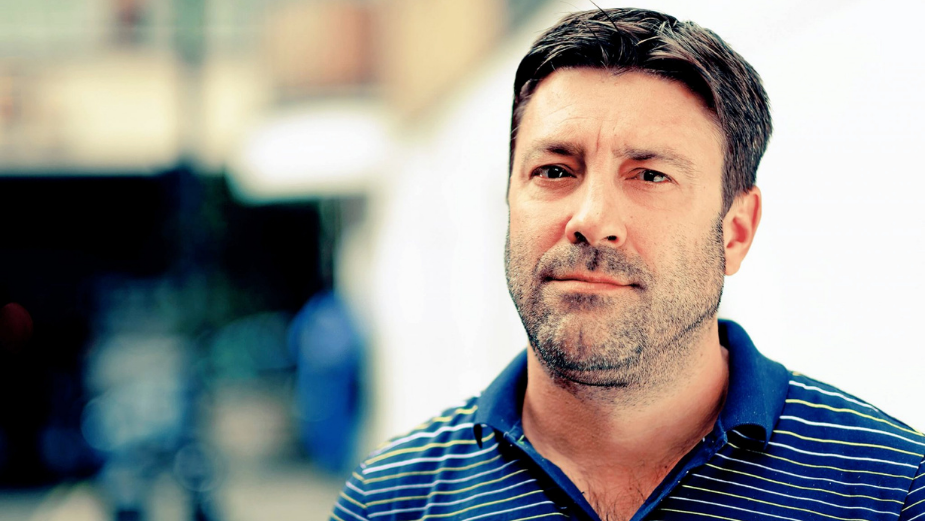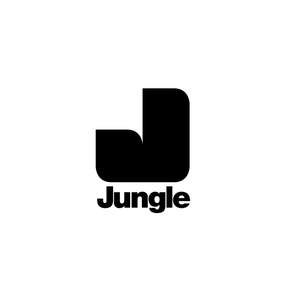
Thinking in Sound: Dominic Dew

Thinking in Sound is a new feature that delves into the minds of the industry’s fantastic music and sound specialists, showing us just how creative this part of the industry is. We dig into inspirations, passions, and approaches to work, whilst also getting a taste of how the industry is changing.
In this interview, we speak to Jungle sound designer Dominic Dew about how the industry has evolved over the years and his favourite sounding places in the world.
LBB > How did you first get into sound and music?
Dominic Dew > I guess I always had it in the back of my mind. But back in the day when I was thinking about what I wanted to do, I didn't really know anything about the sound world at all. It was very difficult to really fathom what opportunities there are in sound other than being a musician. I assumed I wanted to be a music recording engineer but the reason I got into the post production side of things was because a friend of mine recommended it to me. So, in a way, it was accidental!
LBB > What tends to be your natural approach to a new brief / project? Where do you look for inspiration?
Dominic > It's a tricky question because every brief is different. But also, the specifics on a brief are not necessarily always there at the beginning of a project. I do find that a lot of projects you work on, when you talk to creators, they're still not quite sure how they want something to progress or how they want it to sound or look. And so it's a bit of a journey. For me, the most important part of any project is to try to get a feeling for the people you're working with, and learn what makes them tick. From there, you can hopefully offer up ideas that will allow them to get a clearer picture of what they are looking for. That's the beauty of the creative process and working as a team of people - you help each other find a solution.
A typical example is when I worked on the Peperami ads. The clients and the creative hadn’t really decided how they wanted those three sausages to sound. So I did several sessions with the voiceover playing around with each different character: the beef, chicken and pork sausage. They needed to sound distinct from each other but they also had to have a similarity - as if they were all part of a multiple personality. So we created these personalities through the voiceover experimentation, which the animator could then use to create the look of the characters in their respective scenes.
LBB > So do you prefer to be left to your own devices when you work or do you enjoy being collaborative?
Dominic > My favourite way to work is to have some time to get my head around the project first and create a few different options before getting feedback. I think it is a nice way to work - to give a sound engineer time to put their own mark on something. Once you've got enough material in there to critique, then it's nice to have the creators in with you. If you're in a room with five clients behind you talking and commenting on sounds you’re auditioning but not intending to put in, it can slow the process down and sort of becomes counterproductive. A lot of the sound process can be quite irritating to listen to for the clients too - if you're looping something over and over again, applying different filters to it, for example. I don't want to drive them crazy so if they’re in the room I tend to wait to do that part - which hinders your creative process. So that’s why I find it useful to have that time to myself at first.
LBB > What have been some of your most memorable projects so far?
Dominic > Sky Living wanted to create a big brand ad and it was all about trying to play with really, really strong sound design. And with the track they wanted it to be almost non existent to start with, but then grow and present itself towards the end until it kind of blasts into existence. So that was a really nice project to work on from a sound perspective. It was all just sound design and music.
LBB > How do you feel that the role of sound and music changed over the years?
Dominic > When I was a kid, we all used to talk about ads. Because they were all quite good - there was a lot of humour in advertising. And there was a lot of risk taking. I do feel, personally, that advertisers are very worried about offending anyone now. So these days you do find that a lot of the time all of the humour is stripped back to the point where it's lost. And an ad is no longer really a talking point. I think we've moved away from interesting content with advertising. Not all of it, obviously, but I think that there are far less ads that people talk about. Weirdly, there used to be something about advertising that you always used to look forward to in an ad break. We could probably get back to being a little bit more risque with advertising. What offends one person and doesn't offend four million is probably not offensive. I think that anyone who gets a single negative comment from anywhere just goes, right, let's just pull that. Which is a shame.
Then there’s things like YouTube and online content where you now get the option to skip an ad after just a few seconds. So there's definitely a move towards trying to make that first four seconds of an ad count and give all of the message that it needs to. As long as you can make that first five seconds as punchy and memorable as possible, then I guess advertisers are hoping that that will do the job. But I personally think within four seconds, there's very little you can do creatively to make something memorable. Anything that's memorable needs time to develop a story.
LBB > And how has your own relationship with music and sound changed over the years?
Dominic > There's an awful lot of stuff that's changed in what you can do with things like audio plugins and the emergence of new technologies. What used to take an hour to do, you can do in a matter of seconds now. And you have limitless different parameters - you can transform a voice, for example, from being in a recording booth to being in the Albert Hall or being in a tin can. Plugins can emulate hundreds of different scenarios so you can pretty much put anyone in any situation within seconds.
LBB > Are you much of a collector when it comes to sound?
Dominic > I certainly like to record stuff. I've got this little handheld recorder which is a really lovely little piece of kit - it's lighter than a phone so you can pretty much take it wherever you go. And every now and then I find myself in a place or scenario that I think sounds really nice and I’ll just record it. Particularly sounds that you can never really find in a sound effects database. It only takes two minutes to set up and record and then you've suddenly got a sound effect that you can use above the stock sound effects. As a lot of the main sound effects libraries are American, if you want a park in London you’ll only have American kids running around and American sirens and things like that. So it helps to have your own for authenticity. Different parts of the world sound different. I took my recorder to Marrakech and it's the most eclectic sounding place I've ever been in my life. Everything's echoey, it was the most incredible thing to record.
LBB > Is there anywhere you've not been yet that you'd love to visit from a sound perspective?
Dominic > I went on safari years ago in Kenya to the Masai Mara. That was pre-digital handheld recording devices so I'd love to go back there and record as much as I can. It’s such an extraordinarily different world and the sounds at night are incredible as there’s no sound pollution - no planes, cars or anything so you can capture the sound of nature.
LBB > Lastly, what hobbies or passion projects do you have outside of sound and music?
Dominic > So, Jungle until lockdown was a Fairlight studio, which is impossible to use outside of the studio environment. All the engineers at Jungle had to rapidly install and learn ProTools practically overnight. In fact, my first ever ProTools session did happen overnight - on the night that the full lockdown was announced in March. I did the sound on the first Chris Witty/Mark Strong TV broadcast at about 3am that morning so that it could go on air the following day.
So, without doubt the biggest challenge / project that I have had recently is running sessions remotely, recording VO’s who are also at home, so that everything can run like a normal session, with clients listening in and directing, all to picture. On completely new-to-me software!
In many ways, I believe that it's one of the best things to have come out of lockdown for me, in that Jungle has transformed into a ProTools studio. And I've been able to use this as an opportunity to learn a whole new DAW which I've been wanting to do for years!













